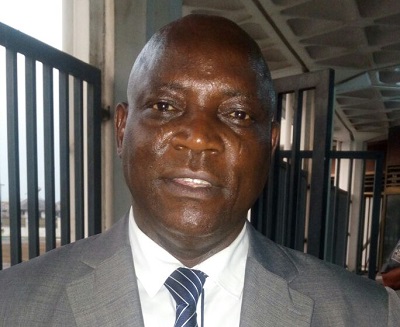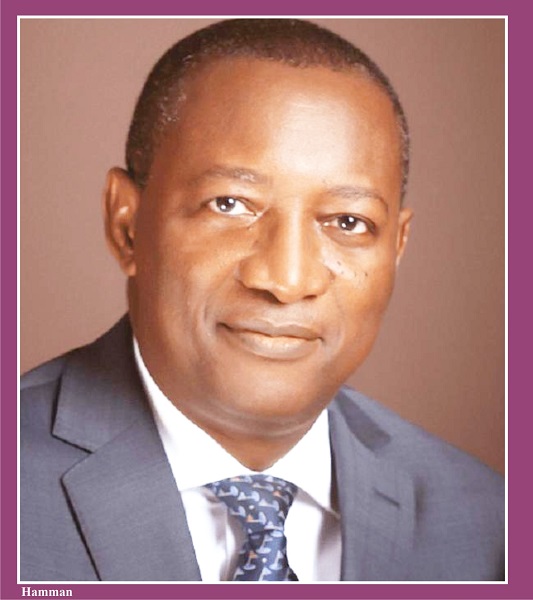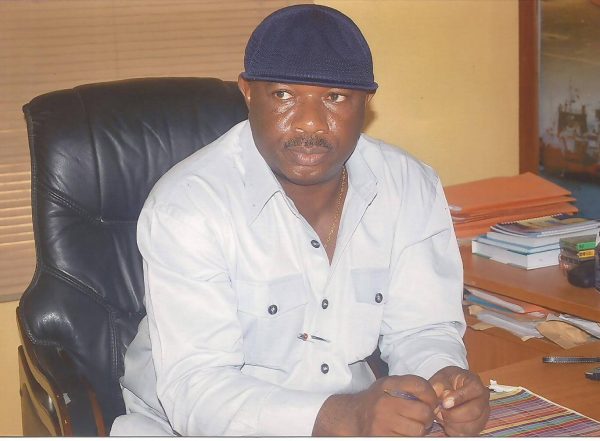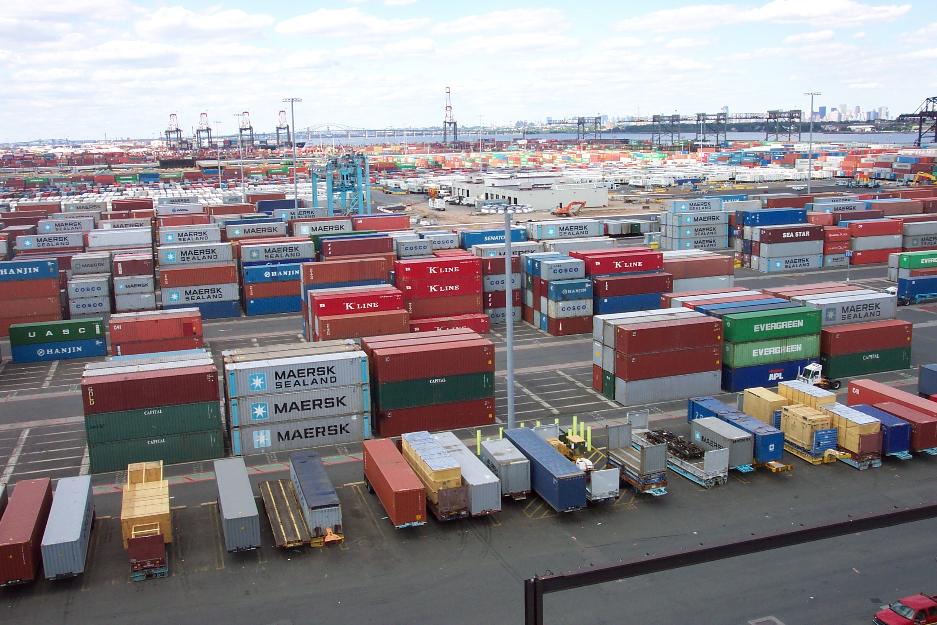The Ordeals Of Truck Business
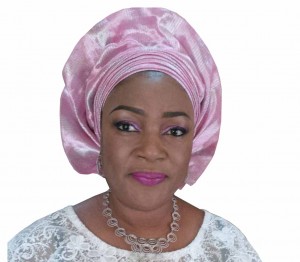
Mrs. Folake Soji-George is the president of Corporate Truck Fleet Owners Association (CTFOA), a newly formed truck owners association. She is also a co-director at Al-Hadiat Nigeria Limited. In this interview with MMS Plus, Mrs. Soji-George who recently got her Masters degree in International Law and Diplomacy from the University of Lagos (UNILAG), narrates her journey into the trucking business, the teething challenges as well as the core objectives of CFOA.
Excerpts…
How long have you been in the trucking business?
I am actually a co-director at Al-Hadiat Nigeria Limited. Al-Hadiat is a trucking company that has two directors which are Mrs. Bolanle George and I. We have been in this business for more than 10 years. We started with a company called Rich Trade. We were moving their open cargo bulk Benin. That was how we joined the trucking business and from there we joined Maersk line when Maersk line was controlling the transportation of Crude from the ports to bonded terminals when we had congestion at the ports. When it was decentralized we moved and had aligned with other major bonded terminals like SDV Bollore African Logistics, MID Maritime, Obiat, etc. We were representing them as their trucker. So far the business has been successful. We have been able to stick in there even when the terrain was rough, when we had a boost and when we were challenged by low turnout. We have been able to sustain ourselves.
What inspired you to go into this industry?
It was more of an accident because it was the owner of Rich Trade then that came in one day, saying that he had a vessel and that he was outsourcing for trucks to take the goods into Apapa, we said we were interested and that was how we started. When we had to work with Maersk line, the general manager at that time, Mr. Anderson said that the good thing about the business was to invest in good trucks. That was how we began investing in trucks and today we have 20 Maersk Tow Trucks.
What is your opinion on the new initiative by Western Ports NPA to restrict non-roadworthy trucks from doing business in the ports and also impounding trucks littering the port access roads?
Prior to this action, the General Manager of the Western Ports, Nigerian Ports Authority (NPA), Chief Ajayi had a meeting with truck owners where he stressed that if we wanted to invest in a business we should seek to do it well. We agreed on the minimum standards for trucks. Trucks should be presentable, they should have hooks, good lighting systems, mirrors, extra-tyres and the brake system should be in good working condition. I think this is reasonable enough. If someone doesn’t want to comply fully by investing in something which is his/her means of livelihood, it is wrong. However, I am pleading with my colleagues and those of other Associations to ensure that their trucks comply to the minimum standards that NPA is asking for.
Since you have spent over a decade in this industry, how has the experience been, what are the high-points and low-points?
The issue is that we have a long list of people in the trucking business; we have those with good fleet and those that have what has been labeled as ‘rickety trucks’. The problem is that the government and the regulatory agencies classify us together. These government officials never see the good trucks and they never consider that even brand new trucks could have accidents especially considering the shambolic state of our roads. Although most of the trucks cause accidents are usually rickety, it is unfair to refer to all truck owners as possessors of rickety trucks.
When we were working with Maersk line in the past, we had sustainable tariffs for the transfer of goods from the ports into bonded terminals. Today, there is no tariff and anybody could charge any amount. For someone like me that has a truck fleet there are lots of expenses such as office, garages, staff, etc. However, when a client wants to engage me for a business to carry goods from the ports to a point of destination, he is supposed to pay a certain amount but those without any over-head cost usually with rickety trucks with no insurance would accept to convey the goods for a much lower price and importers end up giving them the jobs. The importers wouldn’t complain until the trucks fall down on the road and they start complaining and branding every truck as “rickety” but the importers would never state their own part of short-changing in terms of going for cheap services.
There are also other issues of government agencies like the Lagos State Traffic Management Authority (LASTMA) and the Nigerian Police harassing truck drivers, beating them, seizing their number plates etc. We face all these issues most times and there is also the problem of ‘area boys’. Sometimes when truck drivers notice that something is wrong with their trucks and they decide to park and check the vehicle, before they get down from their trucks, they are surrounded by touts who demand to be settled. There is no one to protect the interest of the driver at that point and most times we have to descend to the level of settling these touts to allow mechanics fix the trucks.
Recently, one of my drivers said he noticed a strange sound of his truck and parked several miles off the road but LASTMA came and towed the truck because ‘area boys’ were making a fuss at the scene. We don’t know who to look up to when we have such issues and this is one of the objectives for establishing the Corporate Truck Fleet Owners Association (CTFOA). Those of us that have fleet of trucks can now present our case to the appropriate government agencies to let them know the difficulties we are facing. I believe that when we state these challenges, those at the helm of affairs will be able to do some enlightenment for their staff to curb these anomalies. The security agencies should know that when a truck isn’t causing an obstruction and it can leave where it is parked within the next 15 minutes, then there is no need to tow. They tow these trucks and turn around to charge us colossal sums for towing a vehicle that shouldn’t have been towed. There are so many scenarios like this that would make someone begin to wonder what sort of business this is.
What is the difference between your association CTFOA and the likes of AMATO, NATO, etc?
We just want to have our platform to be represented. This is an association for companies that have more than 10 trucks. When you fall into this category you need to be heard and you need to be represented. You can be in the Corporate Truck Fleet Owners Association and also be in any of those associations if you wish.
I noticed that we didn’t have a representation when there were jurisdiction issues. Some of my colleagues and I went for a meeting while we were trying to solve the problem and we saw that there was AMATO, NATO, RTEAN, etc. but no one was representing us. Hence we decided to have our association to be able to protect our investment and our interests.
What stage is the Corporate Truck Fleet Owners Association at the moment, have you drafted your constitution, appointed or elected executives?
We have some executives but they are not full-blown executives because at the moment we are doing our registration with the Corporate Affairs Commission (CAC). After that we will have something like an Annual General Meeting (AGM) where all stakeholders will be represented, and then we will have full-blown executives and other necessary things that will get us into action. In the next five years, we expect to be a force to be reckoned with in the Logistics Haulage business by ensuring that we have viable fleet that we can be proud of in the industry. We should be able to attain zero- tolerance for accidents by investing in good trucks and keeping them in good working condition and we will have good turn-around.
How about the several other teething challenges such as bad roads?
One other thing that we have as our objective is to talk to government agencies especially those involved in things that will uplift our business. We will have meetings from the Local Council levels to the State and Federal government levels to sensitize them on the need to fix the roads.
We will also discuss with the Standards Organization of Nigeria (SON) to ensure that the tyres and other spare-parts that we get for our trucks are genuine ones and not sub-standard ones. There have been cases where you find that a truck is parked and the tyre just deflates by itself without the vehicle moving or carrying goods. I believe that by the time we have had an encounter with several stakeholders and agencies like SON, they will know how to deal with the importers and the manufacturers to make sure that the raw materials and spare-parts imported or manufactured are standard products and not the ones that will see truckers incur unnecessary expenses.
The Minister of Transportation, Hon. Rotimi Amaechi has been pushing for mergers among several similar associations so the government could relate to them under one platform. Would you subscribe to an idea that demands CTFOA to merge with AMATO, RTEAN, NATO and others?
Yes. There is this saying that in unity we can move better and faster. When you have division and people with different ideas, it will be difficult to have headway. For instance, if we have CTFOA, AMATO, NATO, etc. with the same ideology and unity of purpose to bring trucking into a full-fledged status with the requisite standards, then why not? We will work together for the benefit of all, because no one wants to live in isolation. We just want to ensure that our investments are protected and that we are properly represented.
By Kenneth Jukpor




